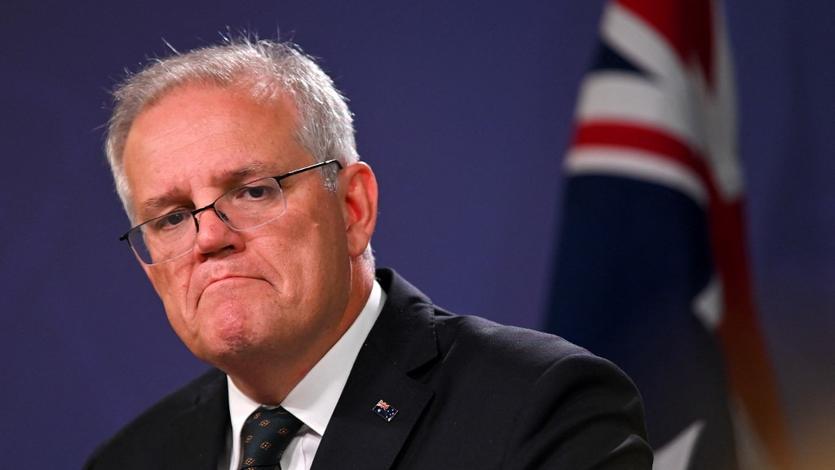 In this file photo dated Feb 23, 2022, then-Prime Minister Scott Morrison speaks to the media during a press conference in Sydney.
(STEVEN SAPHORE / AFP)
In this file photo dated Feb 23, 2022, then-Prime Minister Scott Morrison speaks to the media during a press conference in Sydney.
(STEVEN SAPHORE / AFP)
SYDNEY - Australia's parliament on Wednesday voted to censure former Liberal prime minister Scott Morrison after an inquiry found his secret appointment to multiple ministries during the COVID-19 pandemic undermined trust in government.
Morrison, who lost power in a general election in May, secretly accumulated five ministerial roles during the pandemic: health, finance, treasury, resources and home affairs.
The historic motion, brought by the ruling Labor party, passed by 86 votes to 50 in the country's lower house
The historic motion, brought by the ruling Labor party, passed by 86 votes to 50 in the country's lower house.
It marks the first time a former prime minister has been censured by parliament, though the motion is symbolic in nature.
"The fact is, that our democracy is precious," Labor Prime Minister Anthony Albanese said during the debate, speaking in favour of censuring Morrison.
ALSO READ: Australian inquiry finds ex-PM's secret ministries corroded trust
"There's no room for complacency."
Morrison has said his decisions were lawful, and that the decision was necessary in case ministers became incapacitated during the pandemic.
"For those who wish to add their judgement today on my actions in supporting this censure motion, I simply suggest that they stop and consider the following: have you ever had to deal with a crisis where the outlook was completely unknown?," Morrison said in parliament before the vote on Wednesday.
"In such circumstances, were you able to get all the decisions perfectly right?"
READ MORE: Morrison says took secret roles because responsibility was his
Morrison said he had only used the powers on one occasion, to block BPH Energy's PEP-11 gas exploration project.
He accepted the recommendations of an inquiry into the appointment, including legislation requiring public notice of ministerial appointments.


